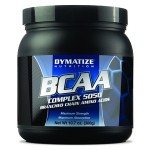By Anthoney J. Andersen – Steroidal.com
Among the many vitamins and minerals the human body needs in order to function properly, and live a long and fruitful life, calcium is probably near the top of the list.
Nearly every cell in the body uses calcium to some extent.
Some examples of these specific areas that thrive off of a calcium-rich diet include the nervous system, muscles, heart and bones.
According to the University of Wisconsin School of Medicine and Public Health, our bones consume calcium in addition to providing a strong foundation for our bodies.
As we get older, our bones consume less and less calcium, forcing our bodies to extract the stored calcium from our bones.
Calcium can be obtained from the foods we eat, as well as vitamins and supplements.
THE BREAKDOWN
Calcium is something we need when we’re young to build strong bones. But as we age, we need it to maintain bone density and keep our bones from becoming frail.
Everyone should watch their calcium intake, especially women and young girls.
This is due to the fact that women give birth and need stronger bones to support the extra weight during pregnancy.
According to the U.S. Department of Health and Human Services, the recommended calcium intake for women and young girls is as follows:
- Girls ages 9 to 18 = 1,300 milligrams (mg) a day.
- Women ages 18 to 50 = 1,000 mg a day.
- Women over age 50 = 1,200 mg a day.
Maintaining proper calcium intake also decreases the risk of osteoporosis (weak bones). One in two women and one in four men over the age of 50 will break a bone in their lifetime due to osteoporosis.
Many individuals won’t even know they have the disease until their bone shatters.
Many foods contain calcium, but dairy products are the best source. The body absorbs milk and dairy products like cheese, yogurt and buttermilk the easiest.
According to MedlinePlus.gov, whole milk (4 percent fat) is recommended for children ages one to two. Adults and children over the age of two should consume low-fat milk (2 percent or 1 percent) or skim milk.
Milk is not only an exemplary source of calcium, but it also contains the minerals – phosphorous and magnesium – which contribute to the absorption of calcium.
Aside from dairy products, calcium can be found in a variety of green vegetables – broccoli, collards, kale, turnips and cabbage – to name a few.
Certain nut products like almonds, sunflower seeds and dried beans can be chalked full of calcium and can aid in meeting your daily intake.
Calcium also comes in a wide range of vitamins and supplements.
According to WebMD, two common dietary calcium supplements that can be found at your local drug or grocery store include citrate and carbonate.
Calcium citrate tends to be more expensive, but is absorbed superbly by the body on either a full or empty stomach.
Calcium carbonate is less expensive and can be found in certain antacid products like Rolaids or Tums. Each pill or tablet can contain anywhere from 200-400 mg of calcium.
STRONG BONES EQUALS STRONG MUSCLES
When it comes to building strong muscles, bodybuilders or avid strength trainers often focus on increasing their protein intake. But are they also keeping a watchful eye on their calcium intake?
Probably not.
A calcium deficiency can cause an assortment of health issues like aching joints, muscle aches and cramps, rheumatoid arthritis, tooth decay and brittle nails.
Now, while the latter two probably don’t weigh on a bodybuilder’s mind too much, surely the aching muscles and joints do.
For a person to be able to squat 700-1,000 pounds, they need to maintain powerful joints around their muscles.
It is essential that a bodybuilder knows the importance of calcium and seeks out ways to maintain proper daily intake.
According to the Journal of Sports Medicine and Physical Fitness, here is the Recommended Dietary Allowance (RDA) for men:
- Ages 19 to 50 à 1,000-2,500 mg a day.
- Ages 51 to 70 à 1000-2,000 mg a day.
- Ages 71 and older à 1,200-2,000 mg a day.
Along with building and maintaining strong bones and joints, calcium also helps in regulating the heart and proper blood pressure.
Two important factors in bodybuilding are muscle contraction and relaxation, which calcium is vital in helping retain.
Calcium enters the muscle cells due to nerve stimulation and causes the proteins myosin and actin to be pulled together – forcing the muscle cells to become shorter and thicker.
CONCLUSION
There’s no doubt that calcium is one of – if not the most – abundant minerals found throughout the body.
Our bodies, especially our bones, endure a lot in a lifetime. So, remembering to maintain a proper calcium intake is vital to living a long and active life.
Take action.








